Copper Frances Giloth: Sunday Morning at the City Hall Doors / Dimanche Matin aux Portes d’Hôtel de Ville
Artist(s):
Title:
- Sunday Morning at the City Hall Doors / Dimanche Matin aux Portes d’Hôtel de Ville
Exhibition:
- SIGGRAPH 2007: Global Eyes
-
More artworks from SIGGRAPH 2007:


Creation Year:
- 2007
Medium:
- Luminage direct-digital print using a CSI LightJet 5900
Size:
- 60 inches x 16 inches
Category:
Artist Statement:
“What interests the historian of everyday life is
the invisible.” I strive to make that invisible visible in my
images. I see nature though our everyday technologies. Rolled strings of electric lights become bird nests. In the afternoon, I watch as people move through the shadows of trees while adding the shadows of their cell phones to the landscape. These composite images capture the poetic juxtaposition of nature with digital technologies in daily life. “Everyday life is what we are given every day,
what presses us, even oppresses us, because there does not exist an oppression of the present. Every morning, on awakening, we feel the weight of life, the difficulty of living, or of living in a certain condition, with a particular weakness or desire. Everyday life is what holds us
intimately, from the inside. It is history at the halfway point of ourselves, almost in a recess, sometimes veiled.”
My formal structure is the grid. These grids are as influenced by the data in an Excel spreadsheet as by the thread of fabrics and tapestries and the data contained in a quilt. The rhythm of the activities I capture is simulated
using the grid to allow the narrative sequences to appear on paper. This structure enhances the simultaneous abstract and
narrative aspects of the images. At a distance, the images appear to be a repeating pattern, a series of landscape elements or a tapestry, but as one gets closer a narrative emerges, and finally one sees the details of the story.
Technical Information:
My works begins as pictures captured with a digital camera. They are about the intersection of our daily experience with digital technologies. Many of the images start as cell-phone
images that are immediately sent to someone else who sends back comments or sends other related images. The process of making the final images is mediated by the technology
itself. In the final production stage, the Adobe Photoshop Contact Sheet Command is used to build the composite image.
1 Paul Leuilliot, preface to Guy Thuillier, Pour une histoire du quotidien au XIXe siècle en Nivernais (Paris, the Hague: Mouton 1977), xi–xii.
All Works by the Artist(s) in This Archive:
- Copper Frances Giloth
-
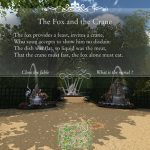
Labyrinth of Fables
[DAC Online Exhibition 2015] -
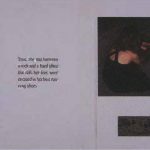
Thirdperson
[SIGGRAPH 1998] -
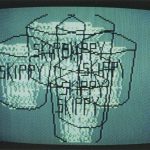
Skippy Peanut Butter Jars
[SIGGRAPH 1998] -

Looking Back 25 Years: SIGGRAPH 82 Art S...
[SIGGRAPH 2007] -
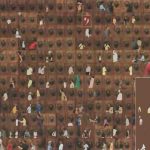
Sunday Morning at the City Hall Doors / ...
[SIGGRAPH 2007] -
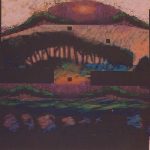
Religion
[SIGGRAPH 1990] -
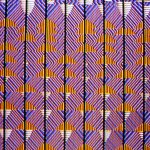
DES07x3
[SIGGRAPH 1982] -
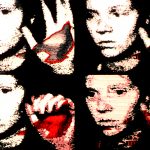
A Bird in Hand
[SIGGRAPH 1983] -
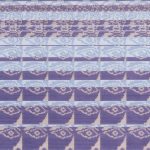
DSO10X2
[SIGGRAPH 1981] -
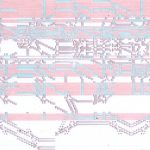
DSO13X2
[SIGGRAPH 1981] -
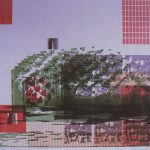
Fields #17
[SIGGRAPH 1985] -

Clothes Hanger
[SIGGRAPH 1987] -
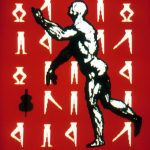
The Conversation #1
[SIGGRAPH 1986] -
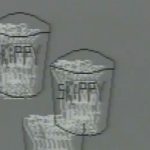
Skippy Peanut Butter Jars
[SIGGRAPH 1986] -

Popcorn
[SIGGRAPH 1986] -

Electronic Landscape 1
[SIGGRAPH 1980] -

Cardioids 3
[SIGGRAPH 1980] -

Sine Rip
[SIGGRAPH 1980] -
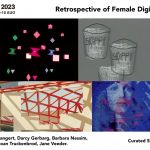
Retrospective of Female Digital Art Pion...
[SIGGRAPH 2023]




